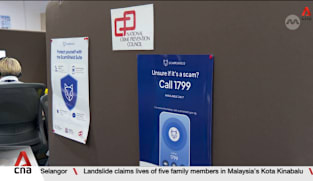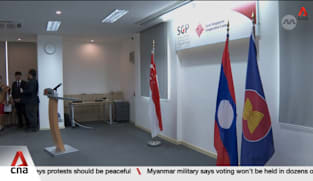Adjournment motion on reimagining the future of education
Singapore has a history of implementing change when change is needed, said NMP Razwana Begum Abdul Rahim, as she called for a change in the idea of schools, education and learning. In Parliament on Monday (Sep 9), she said all stakeholders must be shown evidence that reforming the education sector “will not cause the sky to fall”. In fact, it will lead to better outcomes for everyone, including - most importantly - children. Assoc Prof Razwana said some indicators of success will be when Singapore has moved away from a reliance on formal examinations, when homework and out-of-school tutoring are the exception and not the norm, and when school holidays are for children to put away their books and learn through play. Responding, Education Minister Chan Chun Sing outlined ongoing efforts to improve Singapore’s education system. This includes providing students with “porous and diverse pathways” to grow their potential, in hopes of shifting away from an exam-oriented mindset towards one of learning and growth. He said success is not defined by academic results attained in the first 15 years of school, but by people’s contributions in the next 50 years beyond school. To achieve that, one must start by building a love of learning in the early years. Mr Chan cautioned that in enhancing the education system, Singapore must be careful not to over-structure, over-provide or over-protect. Children must be allowed to try, fail, take responsibility and bounce back from setbacks. Only then, he said, can they learn to “embrace untidiness” and thrive amid uncertainties, which are the only things one can be certain the future will hold.
Singapore has a history of implementing change when change is needed, said NMP Razwana Begum Abdul Rahim, as she called for a change in the idea of schools, education and learning. In Parliament on Monday (Sep 9), she said all stakeholders must be shown evidence that reforming the education sector “will not cause the sky to fall”. In fact, it will lead to better outcomes for everyone, including - most importantly - children. Assoc Prof Razwana said some indicators of success will be when Singapore has moved away from a reliance on formal examinations, when homework and out-of-school tutoring are the exception and not the norm, and when school holidays are for children to put away their books and learn through play. Responding, Education Minister Chan Chun Sing outlined ongoing efforts to improve Singapore’s education system. This includes providing students with “porous and diverse pathways” to grow their potential, in hopes of shifting away from an exam-oriented mindset towards one of learning and growth. He said success is not defined by academic results attained in the first 15 years of school, but by people’s contributions in the next 50 years beyond school. To achieve that, one must start by building a love of learning in the early years. Mr Chan cautioned that in enhancing the education system, Singapore must be careful not to over-structure, over-provide or over-protect. Children must be allowed to try, fail, take responsibility and bounce back from setbacks. Only then, he said, can they learn to “embrace untidiness” and thrive amid uncertainties, which are the only things one can be certain the future will hold.



















